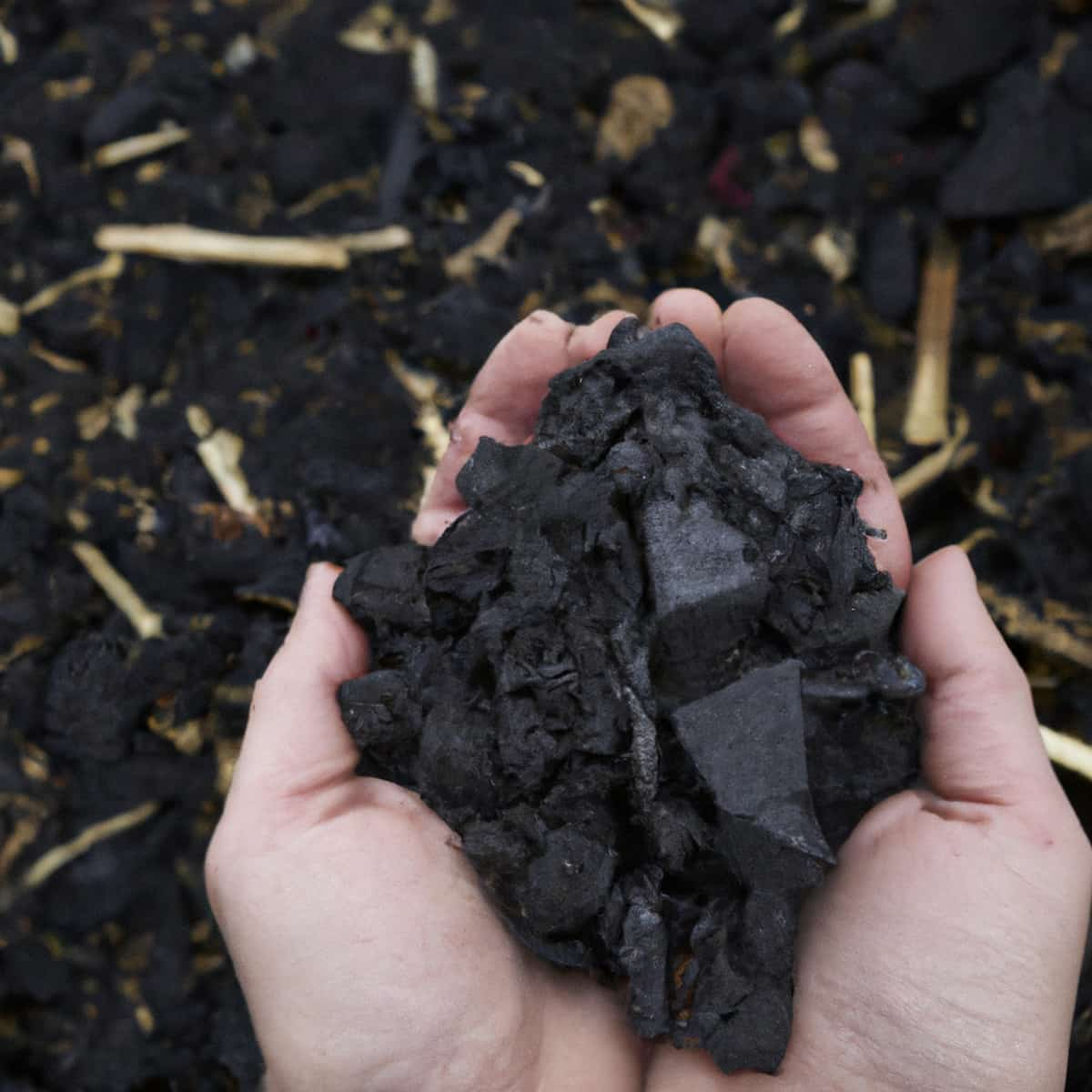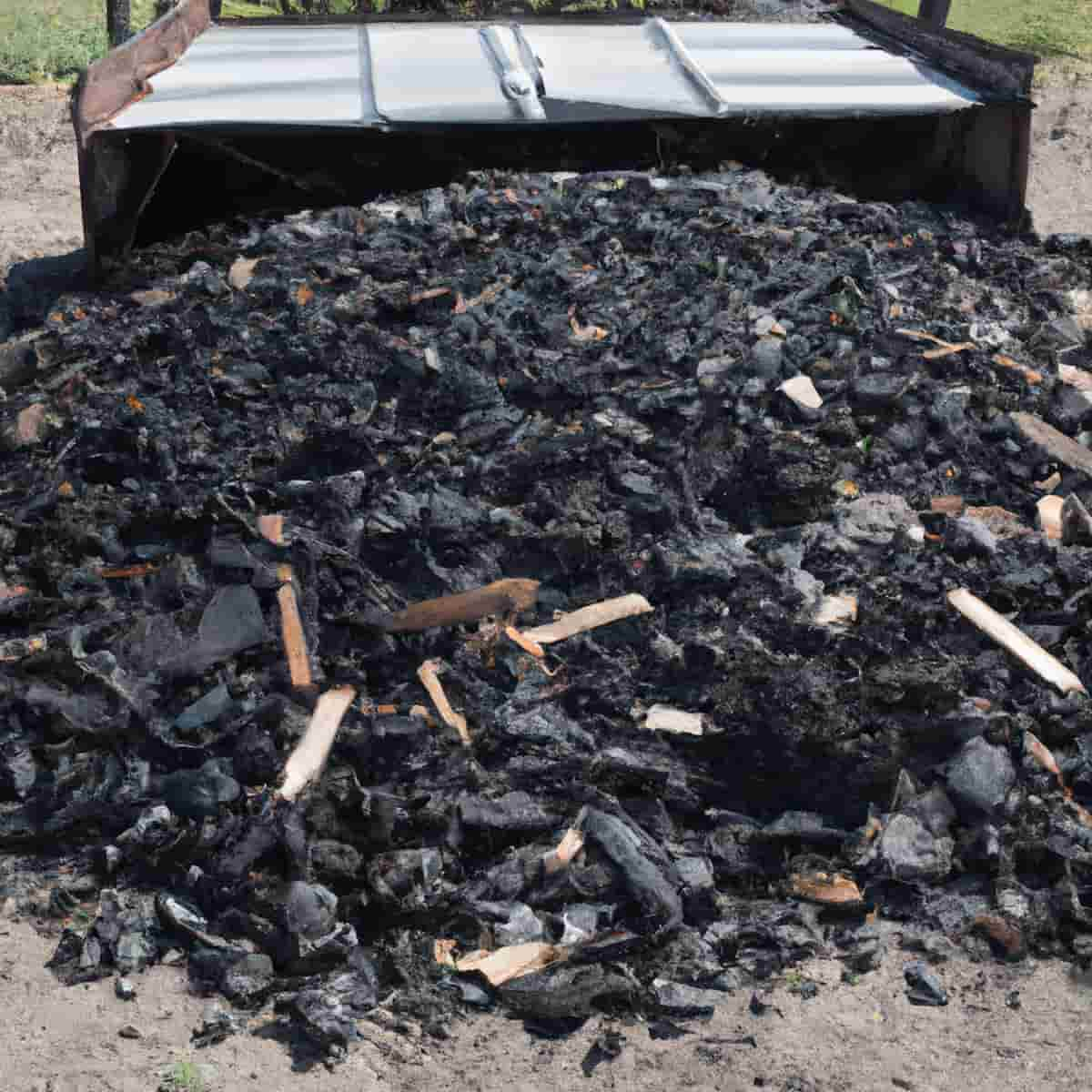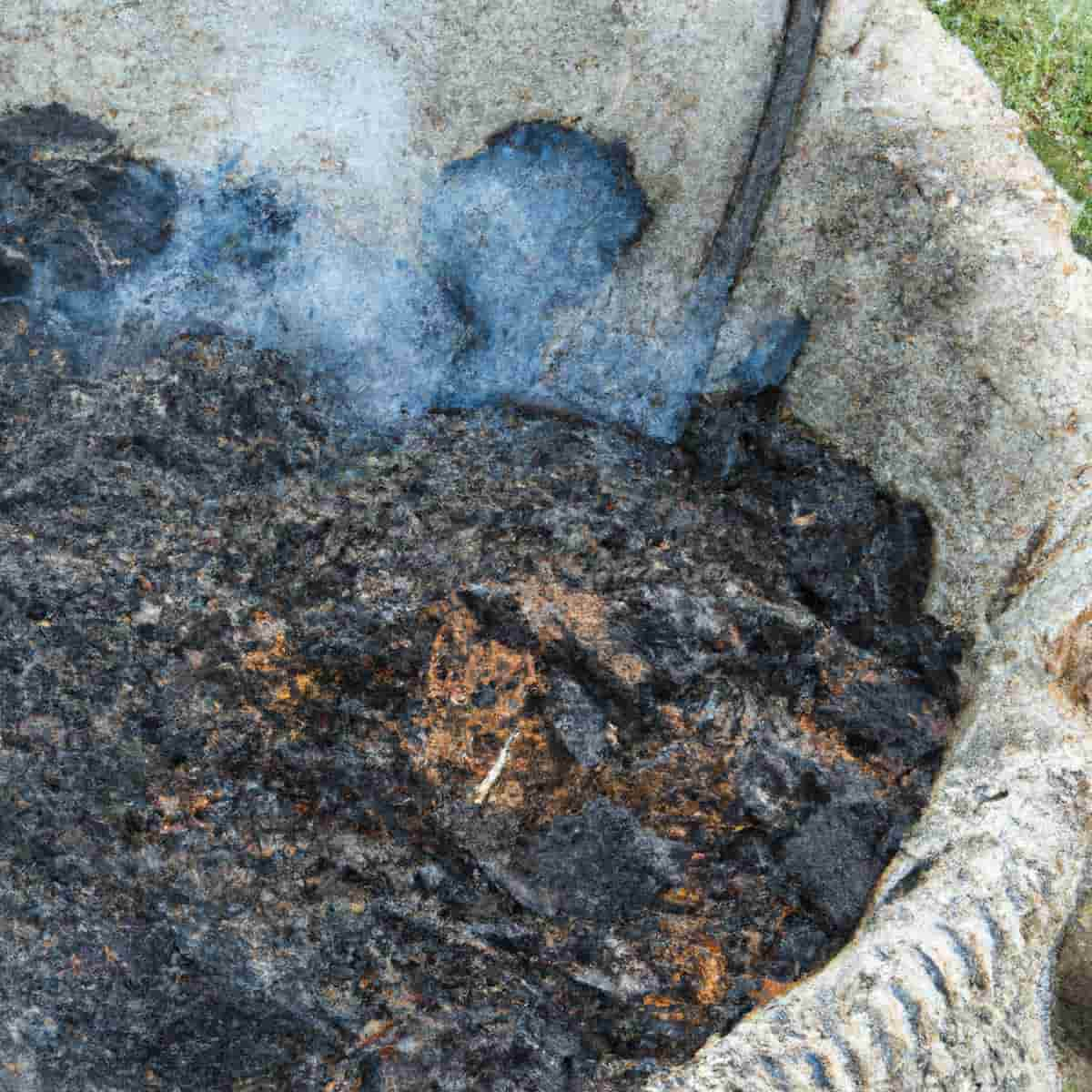Successful crop yields depend on the quality of our soil, and agriculture is one of the world’s most important entities. The soil in which plants are grown is of the utmost significance to cultivating crops for human consumption and use as raw materials in textiles and clothing. However, some of today’s standard farming methods can harm soil quality, diminishing fertility, and yields. Biochar is a remedy that can help with this problem.

Biochar, also known as pyrolysis charcoal, is made by heating organic materials without air. Biochar can increase water absorption, boost nutrient availability, and improve soil structure and porosity when mixed into the soil. Soil erosion, heavy metal pollution, and acidity can all be lowered with the help of Biochar as well. Using Biochar in agriculture has many potential advantages, including higher yields, better sustainability, and enhanced food security.
Biochar in Agriculture
What is Biochar?
Biochar is a carbon-rich organic material from biomass such as wood, leaves, or manure through pyrolysis. It is produced by heating the biomass in the absence or near-absence of oxygen, with oil and gas as co-products.
- Biochar has become popular as a sustainable approach to improving soil quality and removing heavy-metal pollutants. It contains organic matter and nutrients and can improve soil pH, electric conductivity, organic carbon, total nitrogen, available phosphorus, and cation-exchange capacity.
- Biochar consists of a large surface area, porous nature, and the ability to act as a medium for microorganisms. It is an ideal medium for improving soil properties and increasing the absorption of nutrients by plants.
- Biochar has been used as a substrate for plant growth-promoting microorganisms. It is an effective method for reclaiming contaminated soil and achieving high crop yields without harming the environment.
- Biochar’s quality is determined by the soil type, metal and raw material used for carbonization, pyrolysis conditions, and the quantity of Biochar applied to the soil. It can create farm-based renewable energy in an environmentally friendly manner.
Biochar Production and Properties
Pyrolysis, a process that involves heating biomass in an environment with little oxygen, produces Biochar, a type of charcoal. It is black, highly porous, and finely grained, with a large surface area and a pH that makes it an effective tool for soil improvement.
- Biochar is made from various organic materials, including agricultural residues such as crop residues, manure, wood residues, and urban/municipal wastes. The type of biomass used and the processing parameters determine the properties of the Biochar produced.
- Biochar can be produced on a small scale using low-cost modified stoves or kilns or on a large scale using pyrolysis plants. The biomass’s temperature and rate of heating also affect the Biochar produced.
- Biochar has various physical, chemical, and biological properties, making it an ideal soil amendment. It is a stable form of carbon and can last for thousands of years in the soil.
- Biochar is used to improve soil quality by increasing soil pH, retaining moisture, attracting more useful fungi and other microbes, improving the ability of soil to hold nutrients, and reducing greenhouse gas emissions. The physical properties of Biochar make it a versatile tool for managing the environment.
In case you missed it: How to Start a Vermicompost Organic Fertilizer Production: A Profitable Agriculture Business

Benefits of Biochar Use in Agriculture and Soil
- Biochar is an organic material that can be added to soil to improve soil quality and address food security, declining soil fertility, climate change, and profitability.
- Biochar is made from biological sources and can be directly applied to the soil with minimal pretreatment. Because Biochar is stable, it can stay in the soil for longer, giving long-term benefits like an increase in the soil’s pH, ability to hold water, ability to exchange ions, and microbial flora.
- Biochar also can retain nutrients, making it a superior choice over other organic materials.
- Biochar can suppress greenhouse gas emissions in soil and control air-borne and soil-borne pathogens.
- Biochar can reduce emissions of the greenhouse gases methane and nitrous oxide. Prevention of “diffuse water pollution” via ammonium sorption or mediation of the dynamics of a soil solution containing nitrate, phosphorus, and other nutrients.
- Biochar can adsorb pesticides, nutrients, and minerals in the soil, preventing the movement of these chemicals into surface water or groundwater and the subsequent degradation of these waters from agricultural activity.
Impact of Biochar on Plant Growth and the Soil Microbes
- Biochar stimulates the growth of microorganisms in the soil, leading to increased carbon accumulation.
- Biochar provides a habitat for bacteria, actinomycetes, and fungi.
- Biochar enhances water retention in soil and provides a suitable environment for mycorrhizal growth, improving plant growth and yield.
- Biochar can improve soil quality by reducing the leaching of NH4+ and increasing the availability of micronutrients.
- Biochar increases the yield of crops, such as maize, beans, and upland rice, and increases the availability of nutrients like potassium, phosphorus, and zinc.
- Biochar can suppress soil-borne pathogens, reducing the need for fertilizers and decreasing greenhouse gas emissions.
- The interaction between biochar and soil microorganisms is complex; in some cases, Biochar may depress plant growth.
- Overall, Biochar can positively impact soil quality and plant growth, and its use warrants further exploration.
Can Biochar be Mixing with Other Soil Amendments?
- Adding Biochar to other soil amendments, such as manure, compost, or lime, can increase their efficacy.
- Biochar has been shown to absorb nutrients and protect them from leaching.
- Combining Biochar with organic amendments like co-composting has shown a growth-promoting effect.
- Biochar can be mixed with liquid manures and used as slurry.
- Combined biochar and compost applications have numerous benefits, including efficient nutrient use, decreased nutrient leaching, and increased plant-available nutrient supply.
- Diminutive biochars are best suited for mixing with other amendments.
- Biochar mixed with manure in ponds potentially reduced nitrogen gas losses.
In case you missed it: How to Make Coffee Grounds Compost Fertilizer: Homemade Recipe, DIY for Container, Indoor, and Backyard Garden Plants

Conclusion
Because of its ability to increase microbial growth, water retention, nutrient availability, and suppress soil-borne pathogens, Biochar can greatly improve soil quality and increase crop yields. Potential advantages include less need for fertilizer, fewer pollutants, and longer-lasting soil Biochar’s long-term impacts on soil health and its interactions with other amendments.
- Feed Your Flock for Less: Top 10 Tips to Save on Chicken Feed
- Ultimate Guide to Ossabaw Island Hog: Breeding, Raising, Diet, and Care
- Hatching Answers: The Top 10 Reasons Your Chickens Aren’t Laying Eggs
- Eggs and Economics: Breaking Down the Cost of Raising Backyard Chickens
- Defend Your Greens: Proven Methods to Keep Iguanas Out of Your Garden
- Ultimate Guide to Cinnamon Queen Chicken: A Comprehensive Guide for Beginners
- Ultimate Guide to California Tan Chicken: Breeding, Raising, Diet, Egg-Production and Care
- Ultimate Guide to Marsh Daisy Chicken: Breeding, Raising, Diet, and Care
- 10 Types of Chicken Farming Businesses You Can Start for Profits